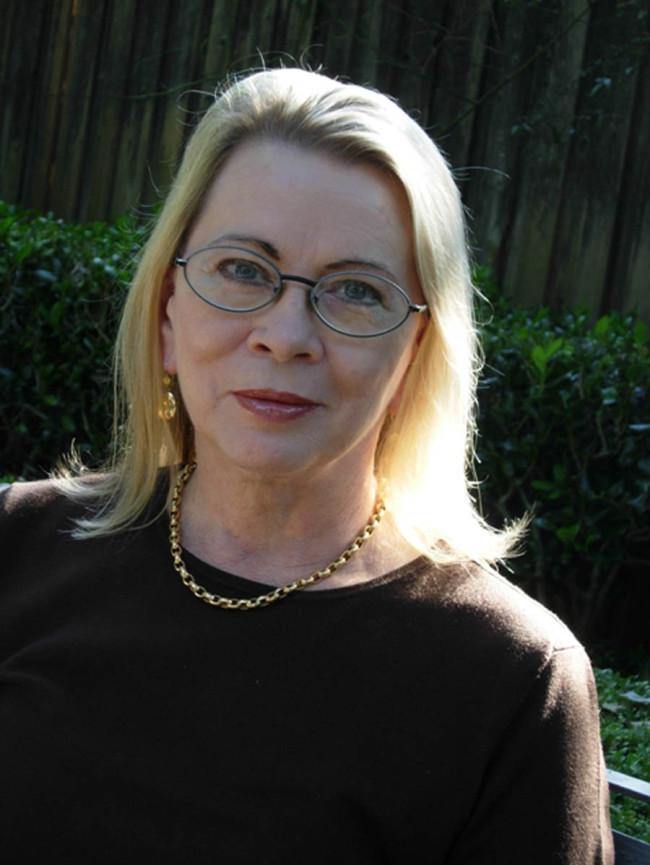
A collection of multi-color origami cranes dangle over director of medieval studies Bonnie Wheeler’s desk. A variety of books sit on a filled bookshelf. In a corner by her door, two academic regalia robes hang on a coat hanger.
There is a blue book, a festschrift published in 2013, on her desk. It’s a collection of writings, published in honor of a scholar. It’s for Wheeler.
“It’s a phenomenal thing,” she said. “It’s a rare thing for a professors to be honored in which the essays are written by distinguished colleagues around the world.”
Purdue University’s Dorsey Armstrong and Ann W. Astell and Amherst College’s Howell Chickering edited the book. The book is written by a collection of esteemed professors.
The editors chose to focus on writings that “extend or complement” Wheeler’s own body of scholarly work.
“Her support, encouragement and generosity has transformed my academic life and that of many others, so to honor her a few of us got together to the publish the festschrift in her honor,” Armstrong said.
Armstrong met Wheeler in 1999 at the International Medieval Congress in Kalamazoo, Mich. When Wheeler mentioned at the business meeting of the International Arthurian Society, North American Branch, she was interested in having some help with the journal she edited, “Arthuriana.” Since Armstrong was staring a job three hours a way in Shreveport, La., she offered to come to Dallas once a month to help.
“That was the beginning of a fantastic working relationship, and she quickly became the most important mentor I have ever had in my academic life, and also, one of my best and dearest friends,” Armstrong said.
Wheeler served as the editor of “Arthuriana,” a quarterly journal published by the North American branch of the International Arthurian Society, from 1994 to 2009. Armstrong was her successor. Wheeler has edited, co-edited or co-authored 13 essay collections. She is also a series editor for two Palgrave Macmillan’s peer-reviewed series, “The New Middle Ages” and “Arthurian” and Courtly Cultures.
Asell’s work studies the spirituality of Joan of Arc and Chickering worked with Wheeler on a book about teaching chivalry about 30 years ago.
Wheeler, who originally started in contemporary literature, switched to medieval studies, after realizing she had done contempeory literature in a semester.
“With medieval studies, there is a 1,000 year of work,” Wheeler said. “It continues to be utterly fascinating.”
She focuses on the 12th to 15th centuries. Some of her interests are medieval romance, Chaucer, gender studies and pedagogy. Sir Thomas Malory’s “Le Morte D’Arthur” is a favorite piece for Wheeler.
“It shows how complex it is to try to be good and great,” she said. “ To try to create a model political system and to try to be a leader while making sure that your followers are strong.”
Before coming to SMU, Wheeler taught at Columbia University and Case Western Reserve University. She intends to teach a class on the chivalry of the Medieval Ages
next semester.
Wheeler is working on a book about reputation in the Medieval Ages and just finished editing another book, amongst her other projects.
Wheeler has received SMU’s Outstanding Teacher Award six times, and she is a recipient of the Phi Beta Kappa Perrine Prize for excellence in scholarship
and teaching.
On the Dallas-based Bonnie Wheeler Fellowship Fund site, dedicated to providing funding for women to complete a research project that enhances understanding of the medieval period, former student Stephanie Hayes-Healy shared how Wheeler changed her life.
“When I walked into Bonnie’s classroom I was both enthralled and inspired,” Hayes-Healy said. “Her eloquence was captivating and passion for her subject infectious. I woke up in the morning excited to go to class, which for me was an unusual state of affairs. She quickly became a person whom I strove not to disappoint.”
In the festschrift, former Wheeler student, the late Stephen Stallcup contributed an essay. He was an assistant professor of English at the University of North Carolina-Greensboro.
“If students can come to class really curious in these materials and find pleasure and work hard to understand them, what more can any professor ask for,” Wheeler said.









